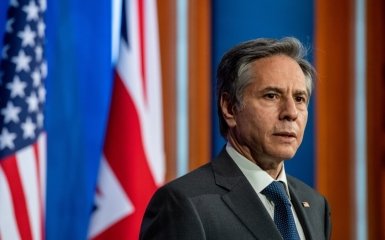Iran can probably produce enough material to build a nuclear weapon in just one or two weeks.
Points of attention
- The US administration is committed to protecting the world from Iran's nuclear proliferation and actively uses diplomacy to achieve this goal.
- After the breakdown of negotiations with Iran in 2022, the possibility of returning to the nuclear deal becomes unlikely due to the escalation of actions on the part of Iran.
- Despite the traditional dialogue at specialized forums, a possible agreement on Iran's nuclear program is almost not taken into account with the new circumstances.
Iran can start production for nuclear weapons in 1-2 weeks
This was stated by US Secretary of State Anthony Blinken at the Aspen Security Forum in Colorado on July 19.
As noted, his estimate is the shortest term ever discussed by US officials. It appeared against the background of the fact that Iran has been actively increasing the production of fissile materials in recent months.
They haven't developed the weapon itself yet, but that's something we're, of course, watching very, very carefully," the US Secretary of State added.
Blinken said U.S. policy is to prevent Iran from acquiring nuclear weapons, and that the administration would prefer to use diplomacy to stop that.
For more than a year, the Biden administration has been conducting indirect negotiations with Iran aimed at restoring the Iran nuclear deal.
These efforts collapsed in late 2022, when the US accused Iran of making "unfounded" demands related to an International Atomic Energy Agency investigation into unexplained traces of uranium found at undisclosed Iranian facilities. In the months that followed, the administration maintained that the Iran nuclear deal was "not on the agenda."
The new president of Iran suggested that they are open to interaction with the West. However, a senior State Department official told CNN that they no longer believe in the possibility of returning to the nuclear deal because Iran has taken too many escalating actions in the years since the talks broke down, the newspaper writes.
The State Department also said that they do not expect the recent elections in Iran to change the country's behavior.
What preceded it
The nuclear agreement with Iran was signed in 2015 by the United States, Great Britain, Russia, France, China, Germany and the EU. They agreed that the Iranian government would give up its nuclear program in exchange for the lifting of economic sanctions.
In 2018, then US President Donald Trump pulled the country out of the deal on Iran's nuclear program and imposed new sanctions against the Iranian regime. He called the deal unfair and expressed doubt that it would limit Tehran's nuclear ambitions.




